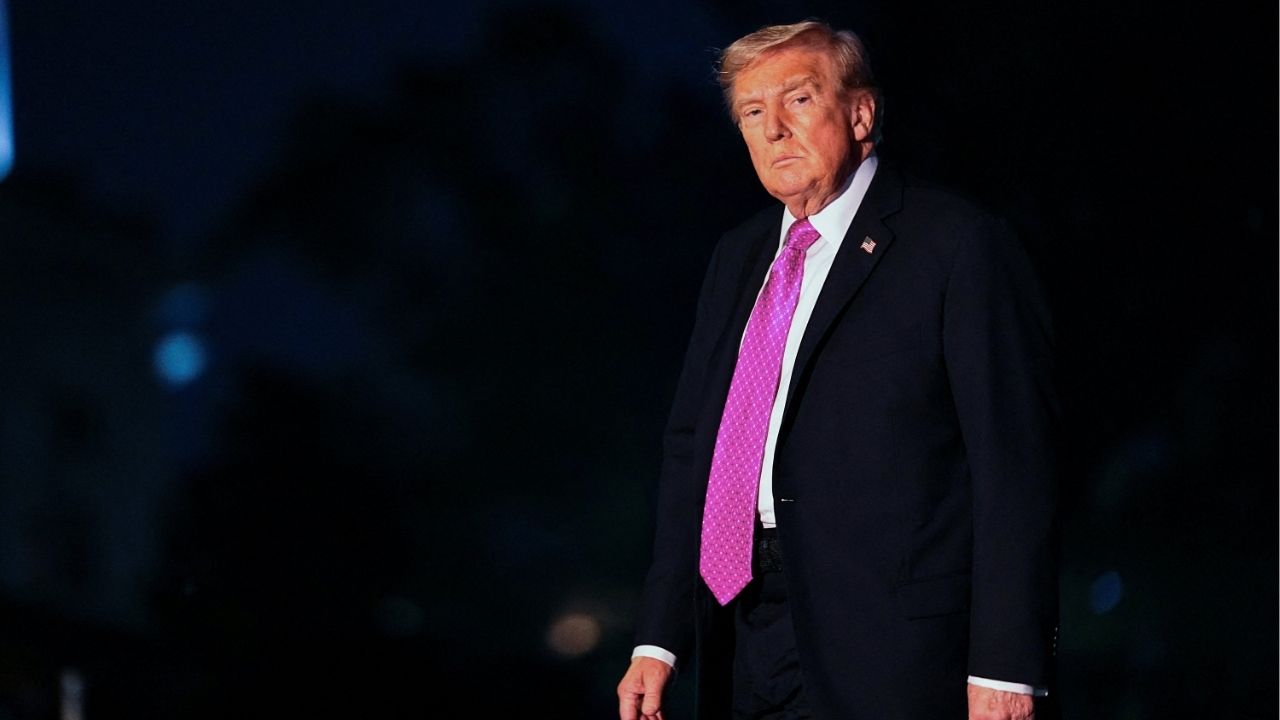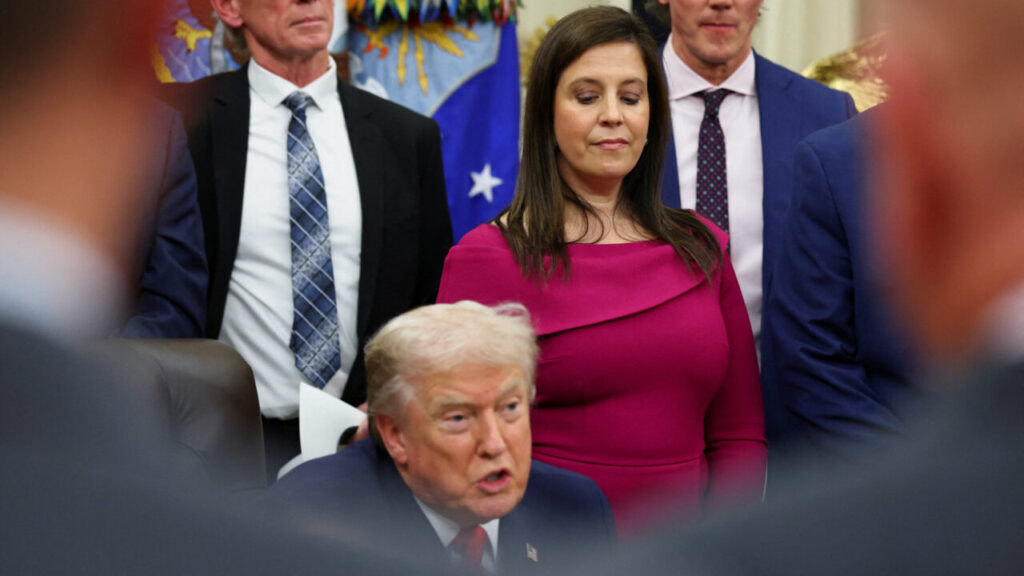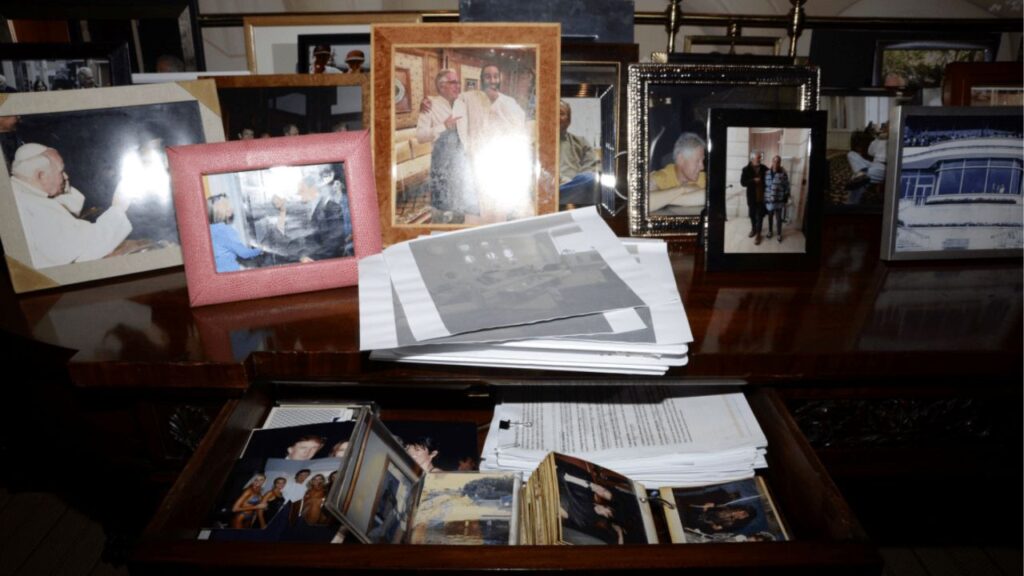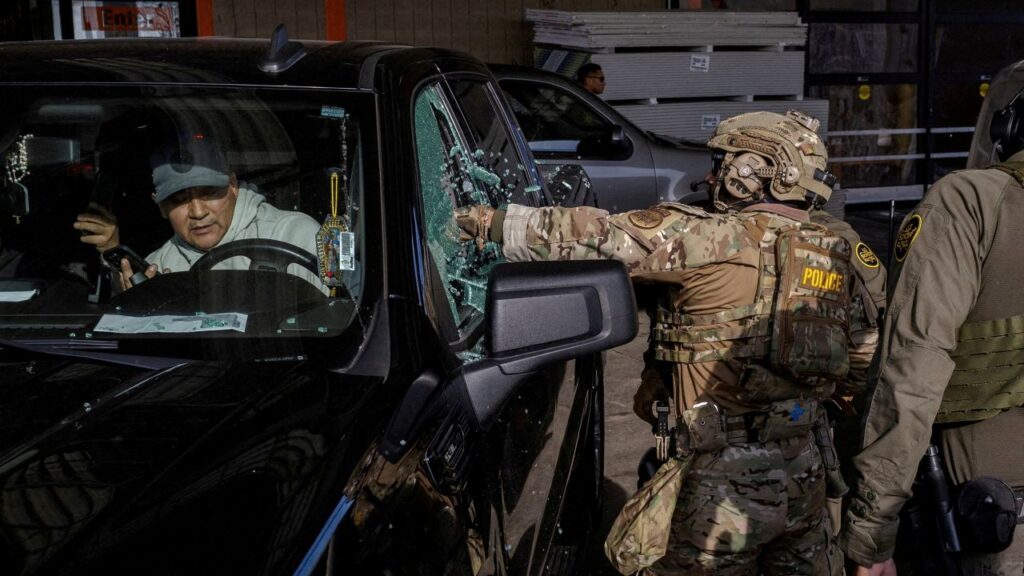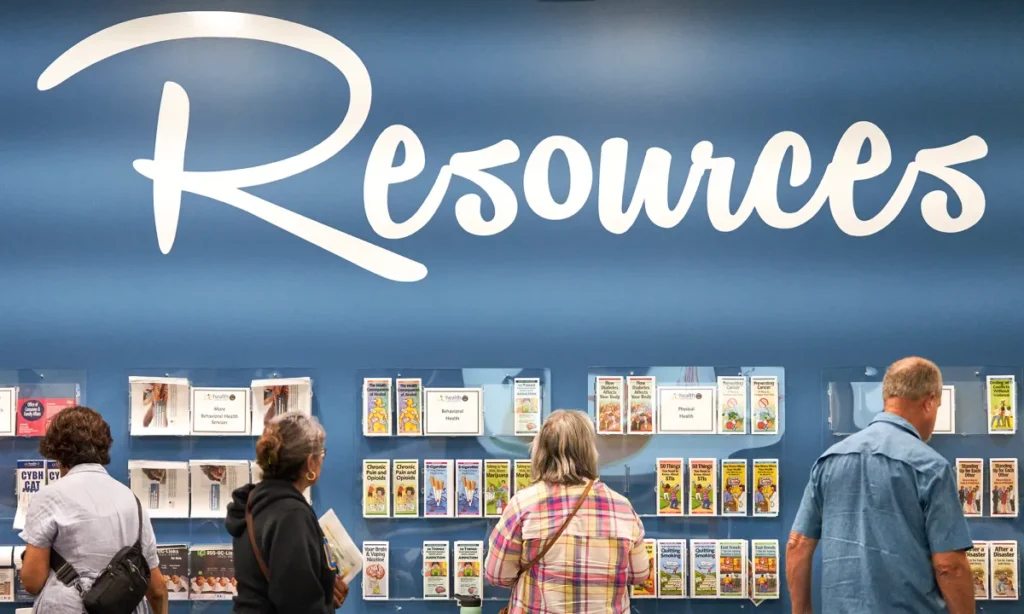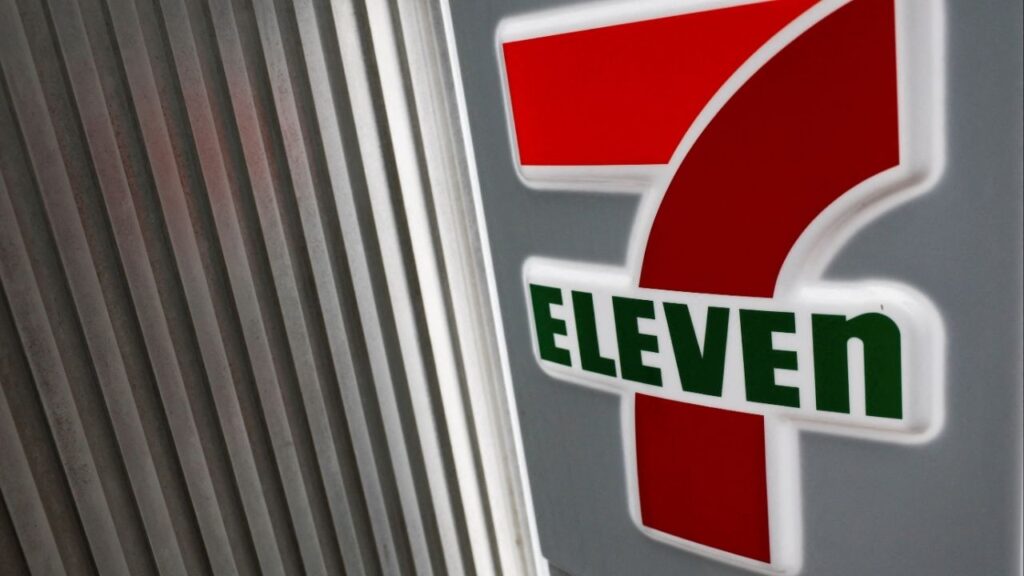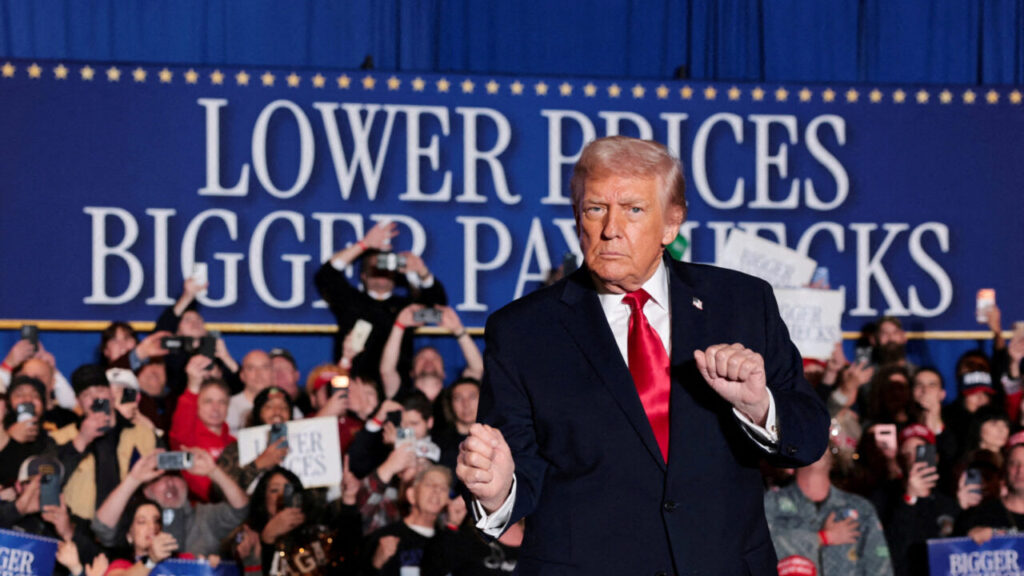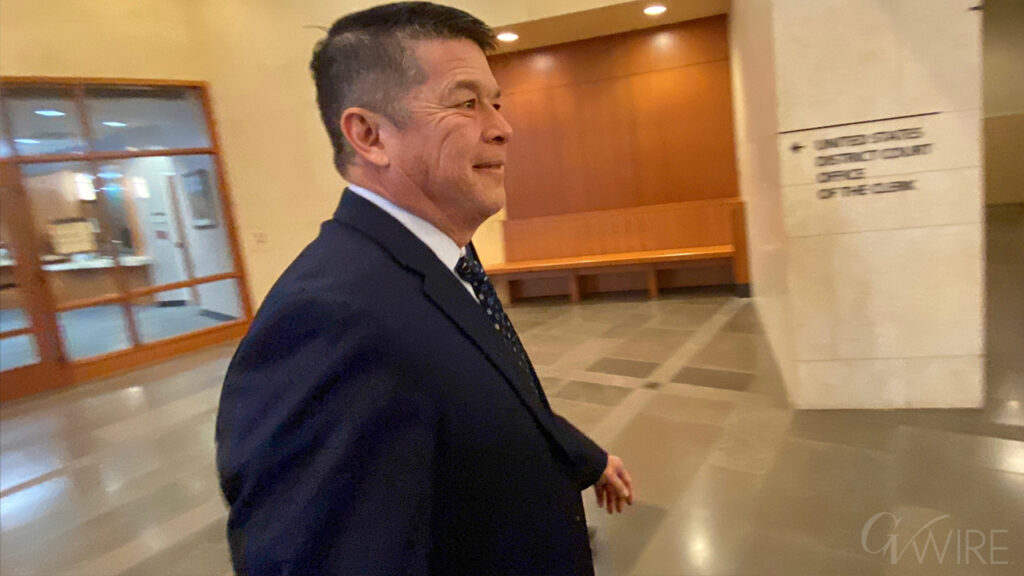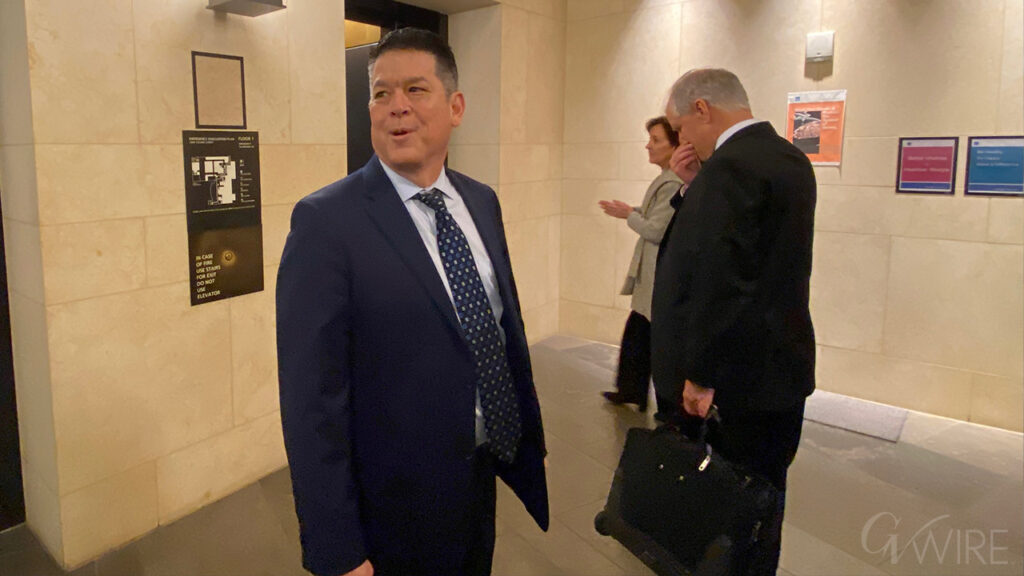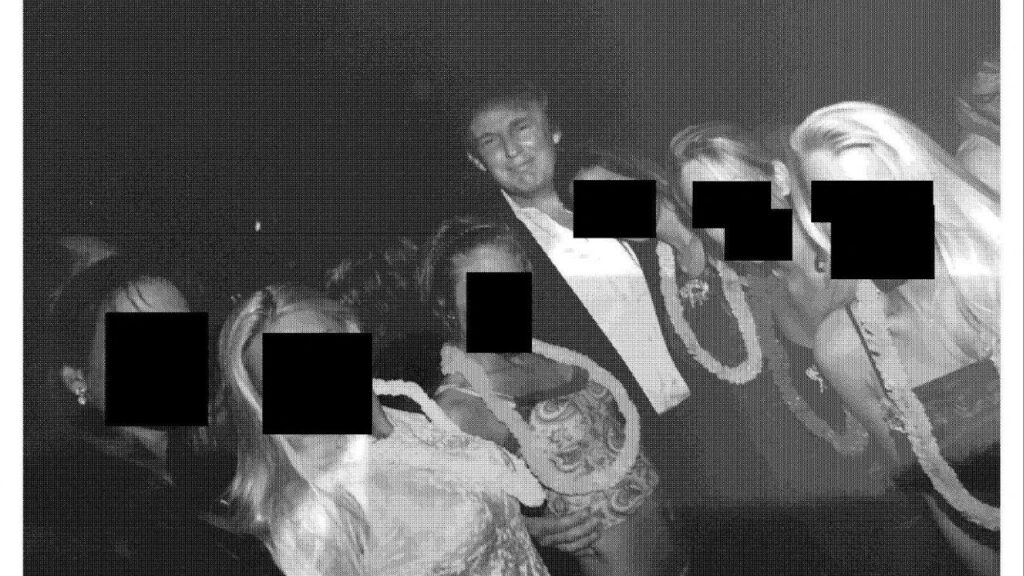President Donald Trump arrives at the White House in Washington, D.C., U.S., September 14, 2025. (Reuters/Aaron Schwartz)

- Trump announced a second U.S. military strike on an alleged Venezuelan drug cartel boat, killing three men in international waters.
- The strike follows a major U.S. military buildup in the Caribbean, with F-35s and warships deployed amid escalating tensions.
- Critics question legality of boat strikes, as Pentagon provides little evidence of drug trafficking and Venezuela accuses U.S. of aggression.
Share
|
Getting your Trinity Audio player ready...
|
President Donald Trump said on Monday that the U.S. military carried out a strike on an alleged Venezuelan drug cartel vessel heading to the United States, the second such strike carried out against a suspected drug boat in recent weeks.
He said three men were killed in the strike, adding that it occurred in international waters. Trump provided no evidence for his assertion that the boat was carrying drugs.
“This morning, on my Orders, U.S. Military Forces conducted a SECOND Kinetic Strike against positively identified, extraordinarily violent drug trafficking cartels and narcoterrorists in the SOUTHCOM area of responsibility,” Trump said in a post on Truth Social.
“These extremely violent drug trafficking cartels POSE A THREAT to U.S. National Security, Foreign Policy, and vital U.S. Interests,” Trump said. U.S. Southern Command (SOUTHCOM) is the military’s combatant command which encompasses 31 countries through South and Central America and the Caribbean.
The post also included a nearly 30-second video, with markings of “Unclassified” on the top, which appeared to show a vessel in a body of water exploding and then on fire.
Reuters conducted initial checks on the video with an AI detection tool but the video was partly blurred, making it impossible to confirm if the video was manipulated.
However, thorough verification is an ongoing process, and Reuters will continue to review the footage as more information becomes available.
The Venezuelan communications ministry did not immediately respond to a request for comment.
The latest strike comes amid a large U.S. military buildup in the southern Caribbean. Five U.S. F-35 aircraft were seen landing in Puerto Rico on Saturday after the Trump administration ordered 10 of the stealth fighters to join the buildup.
There are also at least seven U.S. warships in the region, along with one nuclear-powered submarine.
Sustained Campaign?
Hours before Trump’s post, Venezuelan President Nicolas Maduro said that recent incidents between his country and the United States were an “aggression” by the U.S. and that communications between the two governments had largely ended.
The Trump administration has provided scant information about the first strike on September 2, despite demands from U.S. lawmakers that the government justify the action. It has alleged those onboard were members of Venezuelan gang Tren de Aragua and said 11 people were killed.
The Pentagon has not publicly said what type of drugs that boat was carrying or how much, or even what type of weapons were used to carry out the strike.
U.S. officials, speaking on the condition of anonymity, have told Reuters that the boat hit on September 2 appeared to be turning around when it was hit, a fact that has raised questions among some legal experts about the legality of the strike.
Trump shared a video at the time of that first strike that appeared to show a speedboat exploding at sea.
A Venezuelan official later suggested that the video was created with artificial intelligence.
A Reuters review of that video’s visual elements using a manipulation detection tool did not show evidence of manipulation.
The Venezuelan government, which says it has deployed tens of thousands of troops to fight drug trafficking and defend the country, has said none of the people killed in the first strike belonged to Tren de Aragua.
Maduro has repeatedly alleged the U.S. is hoping to drive him from power.
Last month, the United States doubled its reward for information leading to the arrest of Maduro to $50 million, accusing him of links to drug trafficking and criminal groups.
The decision to blow up a suspected drug vessel instead of seizing the vessel and apprehending its crew is highly unusual and evokes memories of the U.S. fight against militant groups like al Qaeda.
—
(Reporting by Phil Stewart and Idrees Ali. Additional reporting by Jasper Ward; Editing by Rami Ayyub and Rosalba O’Brien)


